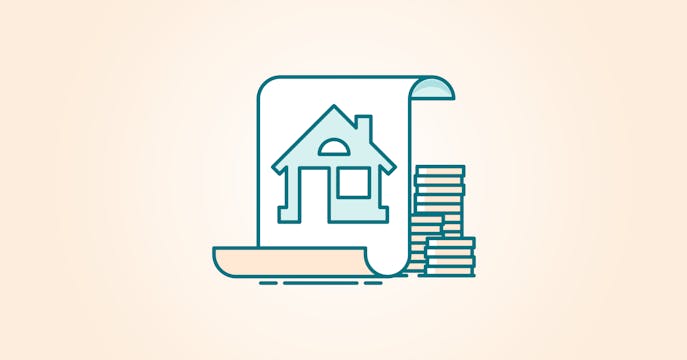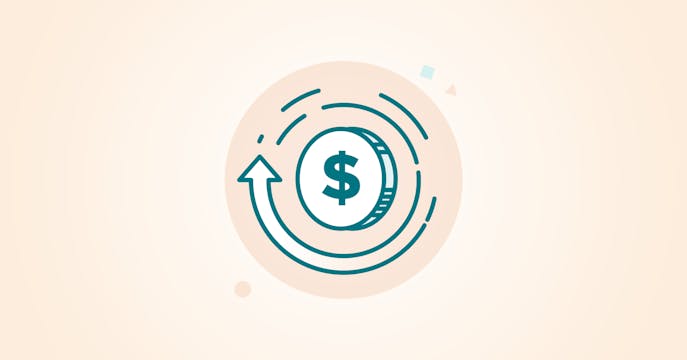Lowest Mortgage Rate in Canada. Starting from 2.49%
How Is Your Mortgage Registered?
Standard vs Collateral Mortgage Charge
Your mortgage registration on title can affect your access to home equity or cost you more at renewal time. Do you have a choice? Here's what you need to know.
Originally posted May 8, 2016

Hindsight is 20/20: The right choice at the start may save money and hassle.
There are two ways to register a mortgage on the home's title: standard charge and collateral charge.
A standard (conventional) charge means that your mortgage is registered for the actual mortgage loan amount, though you may incur penalties and fees if you later decide that you want to dip into your home equity for a line of credit.
A collateral charge means the amount registered is 'padded' for growing room (up to 125% of the home's value) to allow future access to home equity. In this case, you would avoid the title-change fee if you want to borrow more, but you may run into increased restrictions and higher rates at renewal time.
Note: There is also a 3rd type of mortgage registration called 'On Demand' which is treated similar to a collateral registration (check with lender for more details).
In the past, almost all lenders registered mortgages as a standard charge. But that practice has shifted. Now, most big banks register your mortgage as a collateral charge to make it easier for you to borrow more money later, but non-bank lenders opt for the standard charge to keep your costs and process simpler.
Understanding which mortgage charge is registered on your home's title may ultimately save you money and hassle, and make you aware of the details if you need to make a change.
Standard vs. collateral mortgage, what's the deal?
Standard (Conventional) Charge
- Registered with the land registry office for the actual mortgage loan amount (the amount you borrow).
- Allows the option to switch to another lender at renewal time without incurring legal fees (may be covered, depending on lender).
- Provides leverage to negotiate competitive renewal rates with your current lender (because it's easier to switch to another lender).
- Accessing equity later (for example, a line of credit) can usually be accommodated by adding a second mortgage (a 2nd position mortgage charge on title) OR through a refinance (incurring fees; a refinance may involve penalties if done mid-term).
Collateral Charge
- Typically registered for a larger amount than your initial mortgage loan (up to 125% of the home's value, depending on lender).
- Allows a HELOC to be added at the start of your term, making it easier to access home equity for renovations, investments or debt consolidation.
- If a line of credit isn't added at the start, you'll still need to reapply and requalify (as a refinance) to take out extra funds, and pay a legal fee to re-register the collateral charge.
- Non-transferrable to another lender at the time of renewal. If you switch to another lender, discharge and legal fees are involved in registering a new mortgage (legal fees can range from $600 to $1,000, depending on the provider).
- Lenders may offer higher rates at renewal — your mortgage is now larger (tapping into home equity), and more details are involved if you transfer your mortgage.
Do all lenders offer collateral-charge mortgages?
No, not all. Big banks do, because they bank on you borrowing more. Non-bank lenders prefer standard registration because it's easier for clients to move their mortgage, helps to keep renewal rates lower, and helps reduce (or eliminate) fees if you decide to switch lenders.
Do you have a choice in how your mortgage is registered?
Only if you choose a lender that offers the registration charge you prefer. Our True North clients usually consider other factors for their best mortgage solution, such as their best mortgage rate or having more flexible options.
Still, if a standard or collateral charge is a higher priority for you, we can help you make the right choice.
Ask your expert True North Mortgage broker about your best options. It's important to consider your future needs — if you think you'll need extra funds for improvements or investments, or prefer more flexibility at renewal time.
Shopping for the right mortgage can be overwhelming. We're here to make it simple. We'll assess your situation and offer the best solution for an easy, stress-free process.
We get back to you shockingly fast.
We really know mortgages. Here's more

Pre-Qualify in Minutes
Know before you go (house hunting, that is). Get pre-approved fast, hold your best rate.

Renewals and Transfers
Don't sign without talking to us! Show us your renewal notice — we’ll beat it.

Mortgage Title Fraud? Here's What to Look For
Protect yourself against the dangers of title fraud and identity theft.

